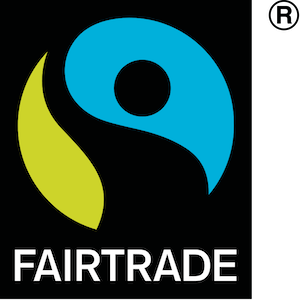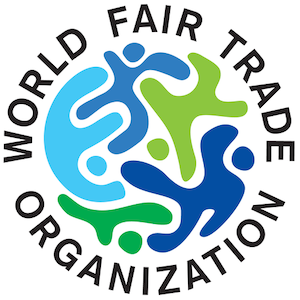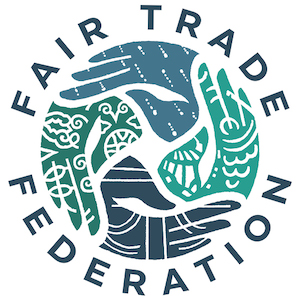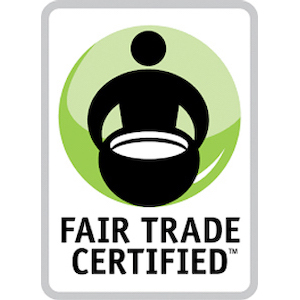“Fair Trade is a system of exchange that honors producers, communities, consumers, and the environment. It is a model for the global economy rooted in people-to-people connections, justice, sustainability and accountability.”
The Fair Trade movement has 10 guiding principles:
- Create opportunities for economically disadvantaged producers.
- Be transparent and accountable.
- Conduct fair trade practices.
- Pay promptly and fairly.
- Guard against child labor and forced labor.
- Promote gender equality and non-discrimination.
- Ensure safe working conditions.
- Build capacity to help producers grow their businesses.
- Raise awareness about fair trade.
- Respect the environment.
The Problem with International Trade
The mainstream trading system is failing the poor. “Free trade” fails because it favors the powerful. Rich countries become powerful in part because of their own protectionist policies. Fair trade offers long-term partnership in place of exploitation.
The Value of “Fair Trade”
Fair Trade bypasses intermediaries, raises incomes of small farmers and other producers and boosts local economies in poor countries. The fair trade farm-gate price is the key to a better life for hundreds of thousands of families.
A “Social Premium” is included in the price of Fair Trade certified products. It may be small but it makes a major difference when the rural poor put the money to work…and it benefits young and old.
Fair Trade puts a human face on development by:
-
Putting many of the best people-centered, ideas about development into practice – in cooperative, sustainable projects.
-
Making available quality products grown or made by people who have a real stake in what they are doing.
-
Empowering women and girls and contributing to ending child exploitation.
Encouraging community action that results in more children going to school, health standards rising and environmental degradation falling. -
Spreading power away from large corporations, strengthening human rights and enabling ordinary people to have more control over their own lives.
-
Defending diversity, embracing partnerships which the mainstream economy often rejects (indigenous peoples, people with disabilities).
-
Challenging transnational trading companies, including supermarkets, to trade more fairly.
Source: “50 Reasons to Buy Fair Trade”, Miles Litvinoff & John Madeley, Pluto Press, London, 2007
The Impact of Fair Trade
Fairtrade International (aka FLO – its previous name was Fairtrade Labelling Organisations International) invests in ” Monitoring, Evaluation and Learning”. MEL Reports contain much valuable information, as can be seen here.
Fair Trade USA publishes annual Fair Trade impact reports on specific products. Click here.
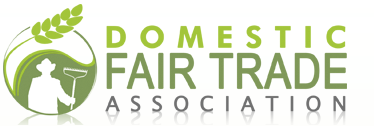
Though “Fair Trade” has mainly been associated with international trade in tropical and sub-tropical commodities, recent years have seen new interest develop in the USA in the parallels between domestic and international Fair Trade.
The Domestic Fair Trade Association (DFTA) was established in 2007 as “an association of farmers, farmworkers, food workers, retailers, marketers, processors, manufacturers, and NGOs with the mission to promote and protect the integrity of Domestic Fair Trade principles through education, marketing, advocacy and endorsement.”
Among bodies associated with the DFTA are several whose names are well known to activists in the (international) Fair Trade Movement. Equal Exchange, the oldest Fair Trade coffee roaster in the USA, was one of the prime movers in establishing the DFTA. The Institute for Marketecology (“Fair for Life”) is piloting its standards in North America. The Fair World Project, Fair Trade Federation, Fair Trade Resource Network and Peace Coffee also feature on the DFTA website.

